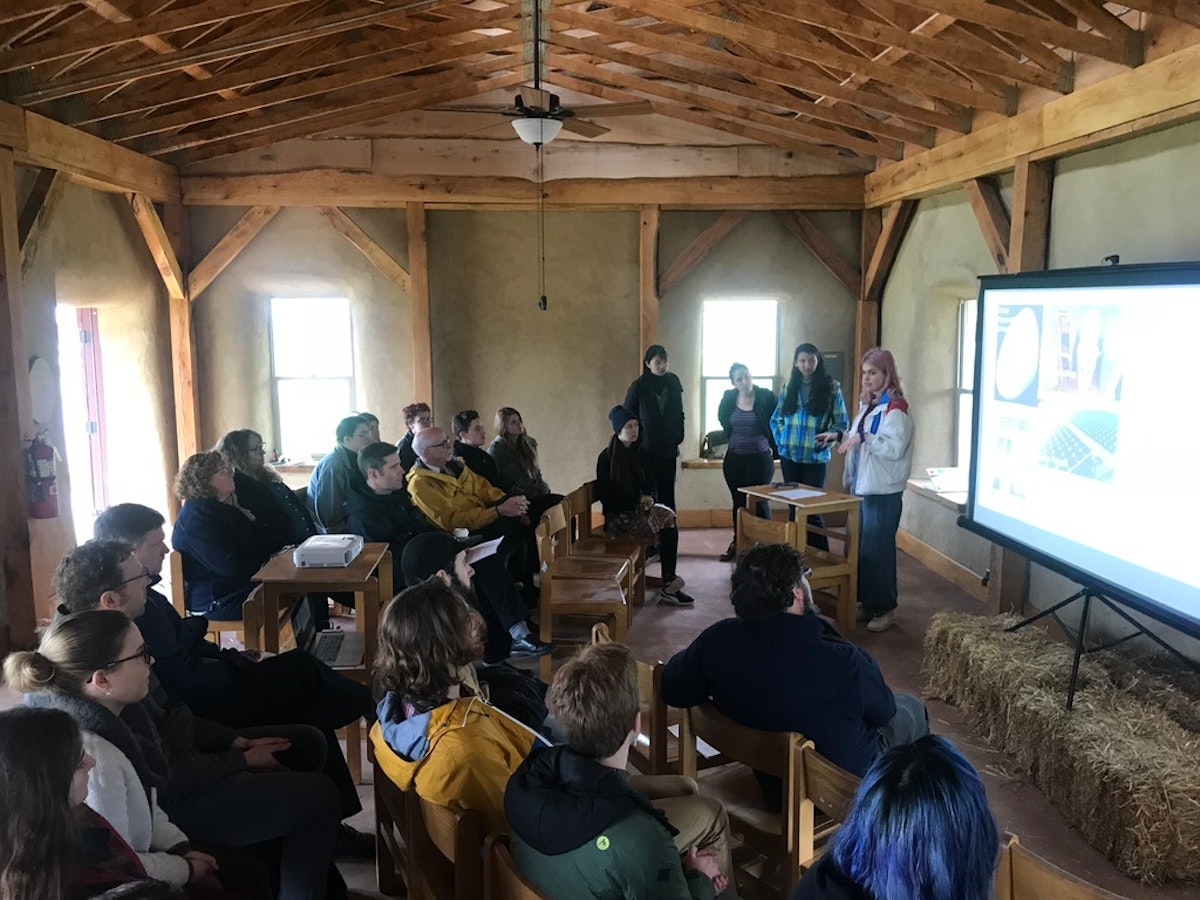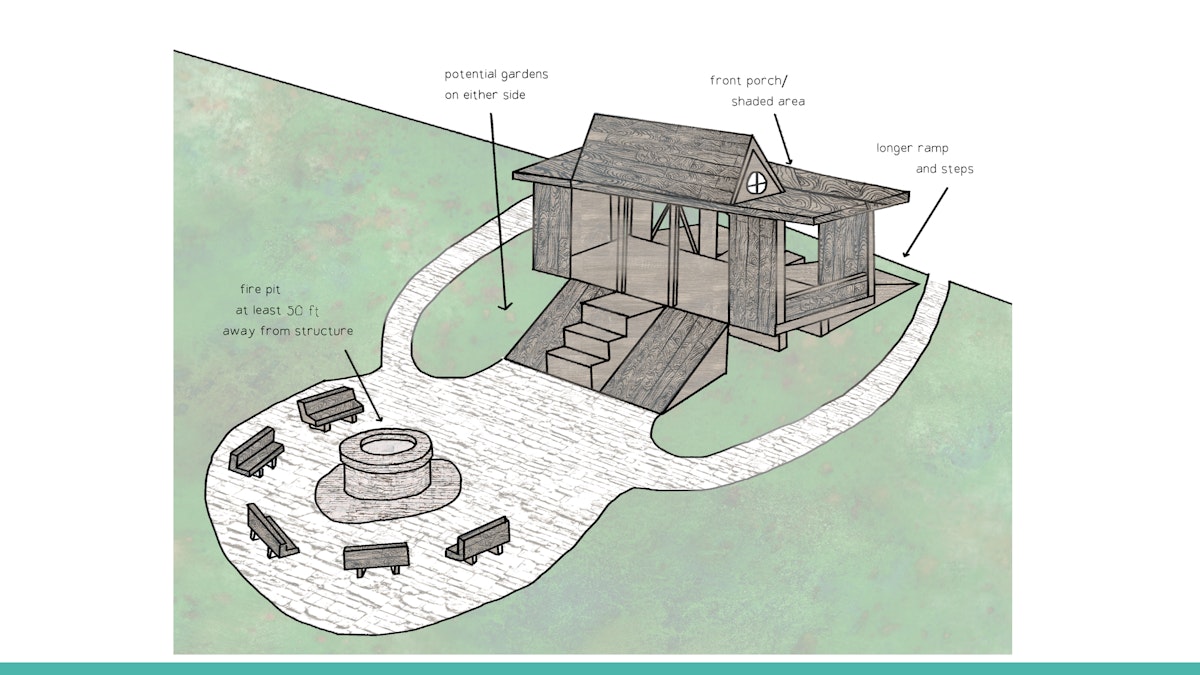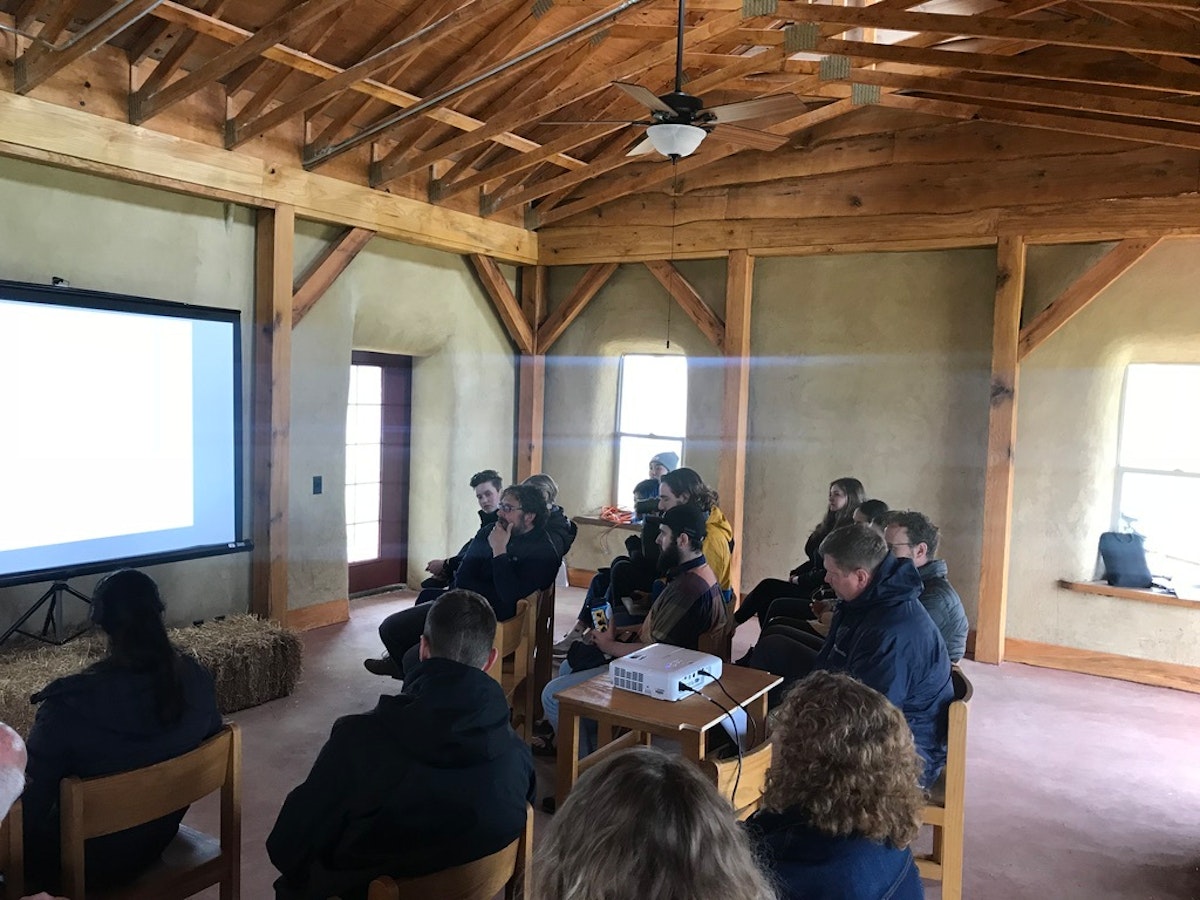The Heart of the Farm: What’s Next for Trumpey’s Campus Farm Eco-Building
During the summer of 2018, Stamps Professor Joe Trumpey lead volunteers and twenty students from his Green Building course in the building of U-M’s only 100% solar powered, natural, straw-bale insulated building on the Ann Arbor campus. Located on the Campus Farm, at U-M’s Matthaei Botanical Gardens, the building was designed to be used as a meeting and special events space for students and faculty.
During the final weeks of the Winter 2019 term, Trumpey’s Green Building course utilized the space for their final presentations, making it the first official class held in the building — and the first 100% solar and renewable-energy powered digital slide presentation on campus.

During the presentations, eight student groups pitched original design concepts for improving infrastructure and activity at the campus farm. Proposals included a new urine-separating and composting toilet with the waste used for fertilizer; an outdoor kitchen outfitted to cater to groups of 150 and equipped with a wood-fired pizza/bread oven, a wood-fired bbq pit, and a wood-fired cooktop; and upgrades to existing buildings for food storage and events.

The class partnered with Frank Turchan, executive chef at U-M dining; Nancy Love, a professor in the U-M Department of Civil and Environmental Engineering; and Jeremy Moghtader, Campus Farm program manager, to learn from their expertise and to ensure the proposals and approaches were reflective of the campus farm’s needs and vision.
“I really like the designs that the students created for this year's course,” said Moghtader. “In particular I felt they were very thoughtful about blending function with aesthetics and sustainability, demonstrating that you can have all three in a well designed space.”

“The strawbale building is designed to become the ‘Heart of the Farm,’” Trumpey said. “It is a beautiful anchoring spot where people naturally gravitate to for meeting each other and discussing sustainable construction, food, and energy.”
“The purpose of the Campus Farm is to serve as a living learning laboratory for students,” Moghtader added. “In this way getting to engage with Joe's students is the perfect manifestation of that mission.”

This is the second eco-building that Trumpey has designed and erected on U-M property; during the summer of 2017, students in the Green Building course worked to build a straw-bale house from scratch on the U-M Biological Station in Pellston, Michigan. Trumpey is currently proposing a housing complex that could bring co-op style living and green construction research to the campus farm area.
Learn more about the campus farm green building.
Banner photo by Brandy Baker, special to The Detroit News